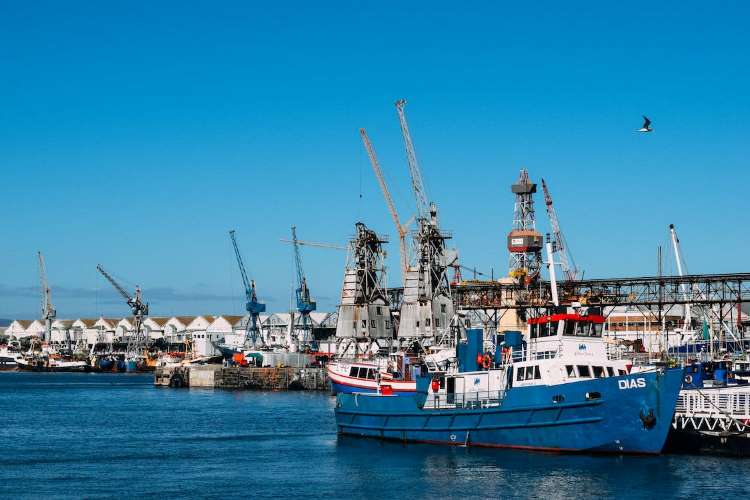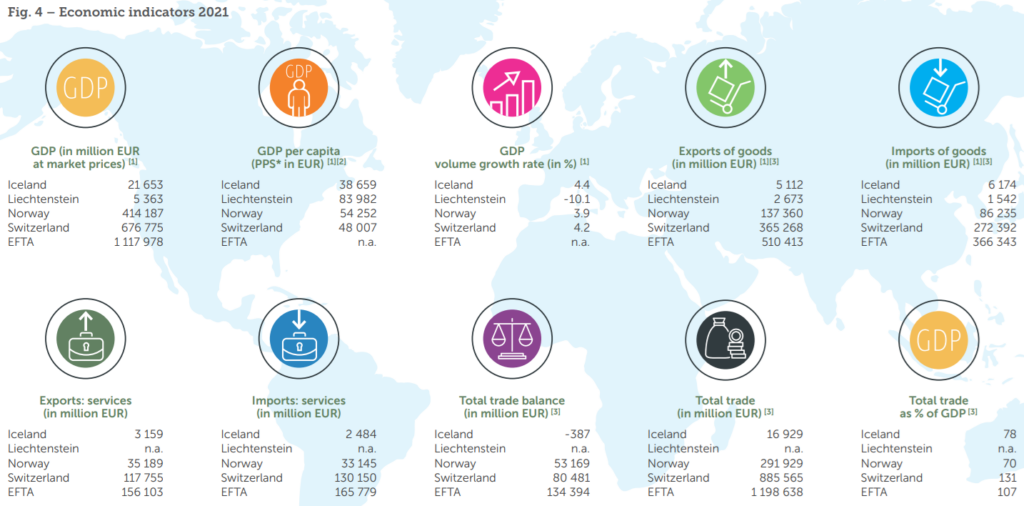
India and a European bloc consisting of four countries have signed a free trade agreement, promising a $100 billion investment in India, contingent on New Delhi lifting most import tariffs on industrial products from these countries. The negotiations between India and the European Free Trade Association (EFTA) have been ongoing since 2008, culminating in a deal after 21 rounds of discussions. This agreement, spreading over 15 years, is expected to generate nearly one million jobs and bring investment to various sectors in India, including pharmaceuticals, machinery, and manufacturing.
The bulk of this investment is anticipated to originate from the private sector, aiming at enhancing manufacturing projects. The pact introduces new elements such as intellectual property rights and gender equity and promises improved market access for Indian products like rice and facilitates the smoother movement of Indian professionals into the bloc’s members — Switzerland, Norway, Iceland, and Liechtenstein. These non-European Union countries will gain access to India’s vast market of 1.4 billion people.
READ | In trade renegotiation with ASEAN, India eyes higher exports, lower deficit
The success of the EFTA could serve as a precedent for future agreements with other developed countries, which often seek both greater market access and investment opportunities in high-tariff countries like India. The EFTA agreement may offer a model for balancing these interests. India’s engagement in multiple trade discussions, including the Regional Comprehensive Economic Partnership (RCEP) and a bilateral deal with the UK, indicates an evolving stance towards foreign competition.
Under this agreement, Swiss goods such as high-end watches and chocolates are expected to become more affordable in India. However, the negotiations did not secure eased access for Indian agricultural exports to Switzerland, which maintains strict tariffs, quality standards, and approval requirements for Indian products.

EFTA countries will benefit from reduced tariffs on processed foods, beverages, and electrical machinery. The pharmaceutical and medical device industries within the bloc will also see advantages. Switzerland, in particular, will enjoy lower tariffs on approximately 95% of its industrial goods exported to India, excluding gold, either immediately or in phases. India has invited Swiss transport companies to invest in its extensive railway network, potentially bringing substantial capital and expertise.
More than 300 Swiss companies operate in India, including well-known firms like Nestle, Holcim, Sulzer, and Novartis, as well as major banks like UBS. Indian IT giants such as TCS, Infosys, and HCL have also made significant inroads in Switzerland.
Norway has secured an agreement for zero import taxes on nearly all Norwegian goods, a significant reduction from the current tariffs of up to 40% on certain items, according to Norway’s Industries Minister Jan Christian Vestre. The agreement will take effect once all involved countries ratify the deal, with Switzerland’s government planning to initiate this process immediately, aiming for approval by 2025.
Limitations of the EFTA
Despite its potential, the EFTA faces challenges, particularly regarding how the legal agreement will translate into actual private investment. Notably, the pact excludes pension and wealth funds from the investment commitments, which could impact investor confidence given the substantial capital these funds hold.
Furthermore, India resisted the inclusion of data exclusivity provisions in the agreement, safeguarding its pharmaceutical industry’s ability to produce generic versions of off-patent drugs. The agreement also excludes “sensitive” agricultural products and gold imports. EFTA stands as a significant trading partner for India, with bilateral trade valued at $25 billion. For EFTA, India ranks as the fifth-largest trading partner.
The announcement of the deal comes weeks before India’s general elections. Prime Minister Narendra Modi has prioritised increased trade cooperation, aiming for significant economic boosts and setting a goal for annual exports of $1 trillion by 2030. Bilateral trade agreements play a crucial role in achieving this target. In recent years, India has actively pursued free trade agreements, signing deals with Australia and the United Arab Emirates, with a United Kingdom agreement nearing completion and potential negotiations with Gulf Cooperation Council countries, though these have been paused due to rising complexities and geopolitical tensions.

